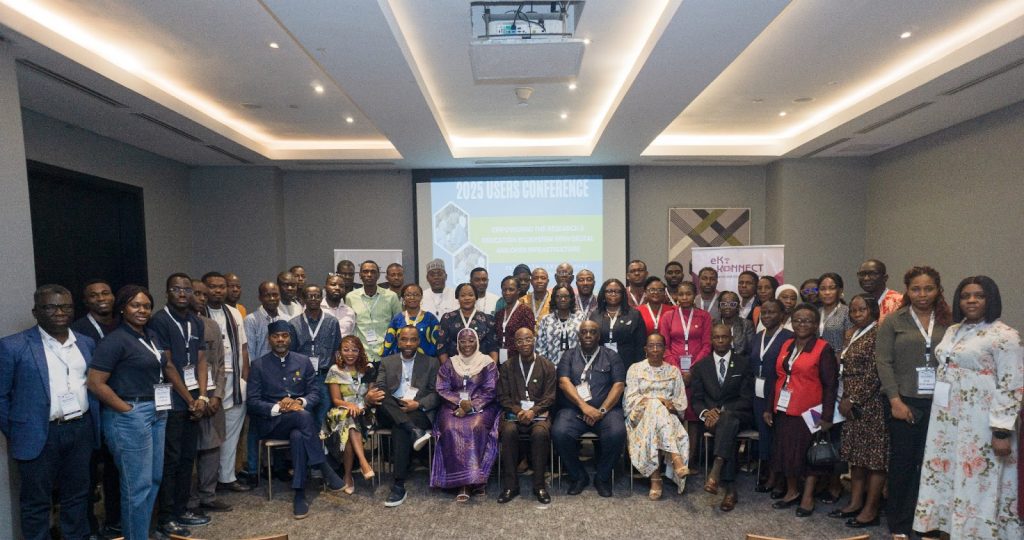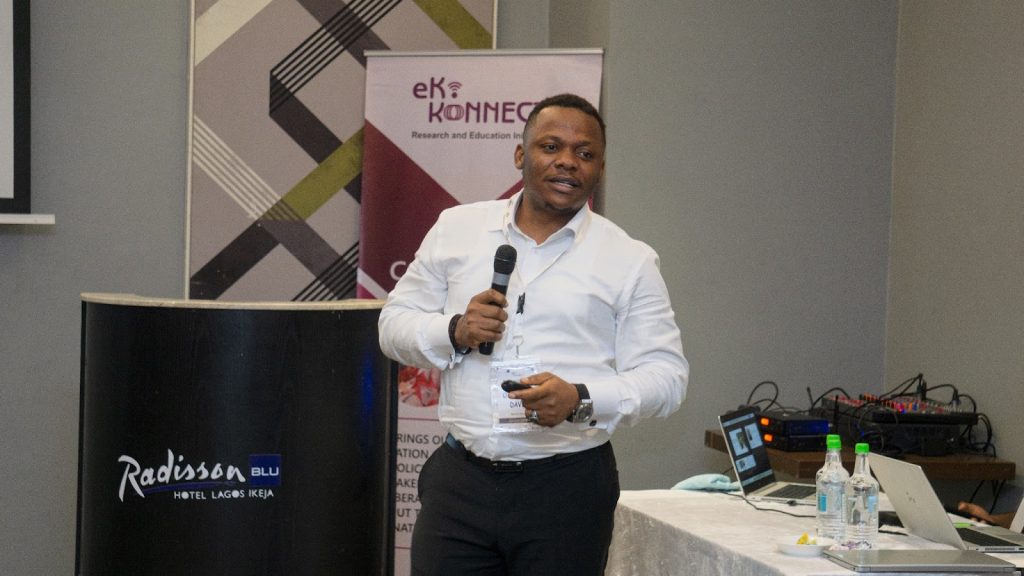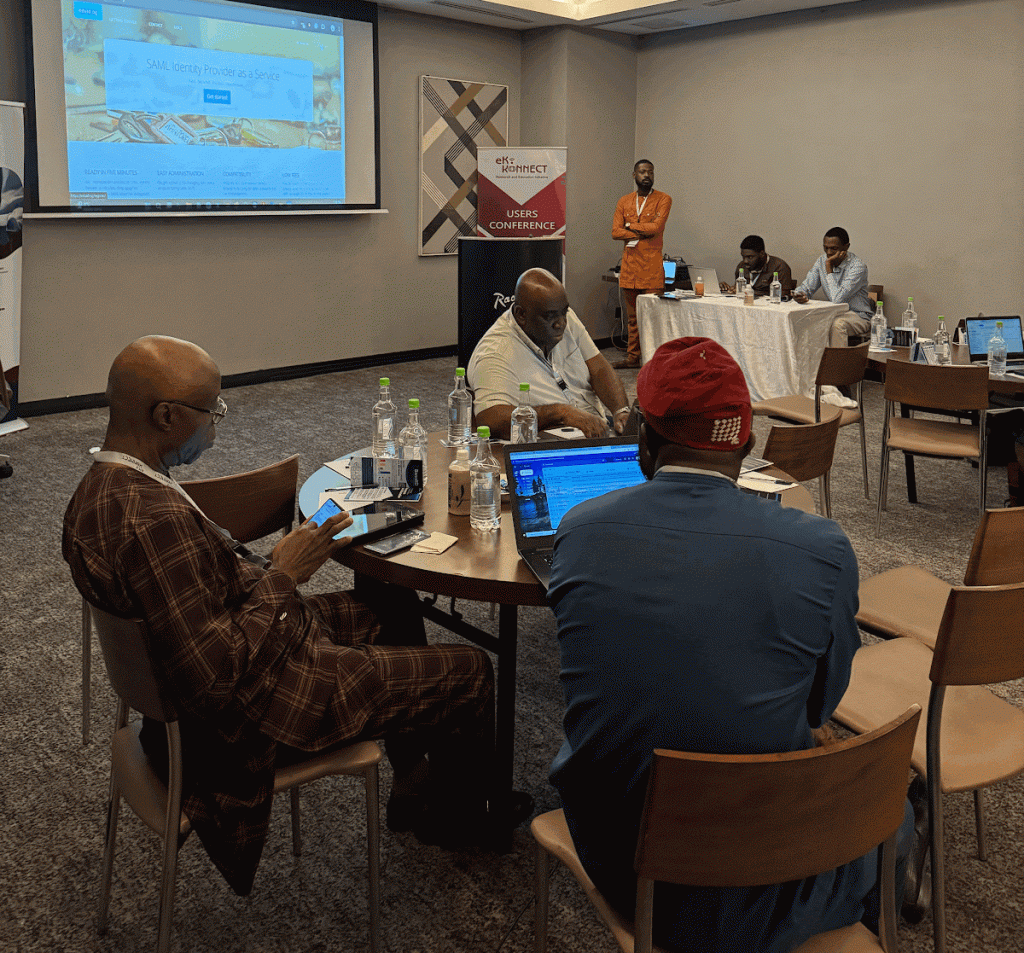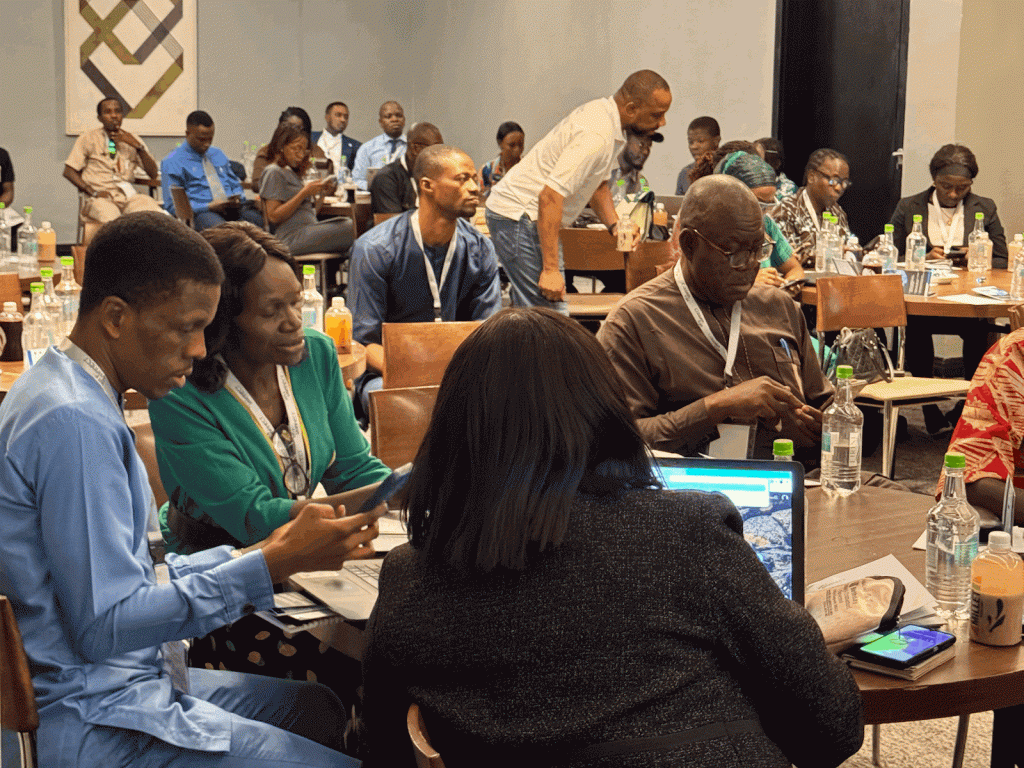With the rapid evolution in areas like AI, cloud computing and the growing need to adopt Open Science practices in research and education, Eko-Konnect hosted its annual users conference, themed “Pathways to a Digital Future – Empowering Nigeria’s Research and Education Network.” This two-day event brought the Research and Education Network Community of Nigeria together at the Radisson Blu Hotel in Lagos on January 29th and 30th, 2025. Day 1 featured insightful sessions on key advancements and emerging technology trends, while Day 2 focused on a hands-on eduid.ng and eduroam workshop.


The conference highlighted the importance of Open Access Repositories and Book Publishing in ensuring equitable knowledge sharing, long-term research preservation, and compliance with global standards. Speakers addressed challenges surrounding paywalls and high publishing costs, emphasising Open Access as a solution. FUTMinna showcased its efforts in Open Access Publishing through its Academic Publishing Center (APC) and BookHub platform, which supports collaboration, peer review, AI-assisted content generation, and digital archiving.


The conference also emphasized the importance of Persistent Identifiers (PIDs) including ORCID iDs, DataCite DOIs and ARKs in enhancing research visibility, interoperability, and collaboration. Discussions also explored the growing influence of AI in research and education practice, including using AI for grant applications and personalized learning. The need for well defined and implemented AI policy was also discussed.


Eko-Konnect talked about shared hosting services and how the infrastructure and user support ecosystem works as part of a collaboration with WACREN designed to assist institutions overcome infrastructure and financial challenges to implement repository infrastructure and associated technologies.


On Day 2 of the conference took the form of an eduID.ng, eduroam workshop that included demonstrating the onboarding of users into Nigeria’s identity federation, eduID.ng, and demonstrating secure and seamless access to eduroam connectivity. Participants were guided through the onboarding process and logging into geteduroam an app that drives certificate-based authentication into eduroam that can also be leveraged for seamless and secure network access. Institutions were encouraged to implement eduroam on their campus networks to improve network access and authentication and to support international academic mobility and visibility.


To download the presentations use the session links below:
Please take a moment to share your feedback via this short survey link:
